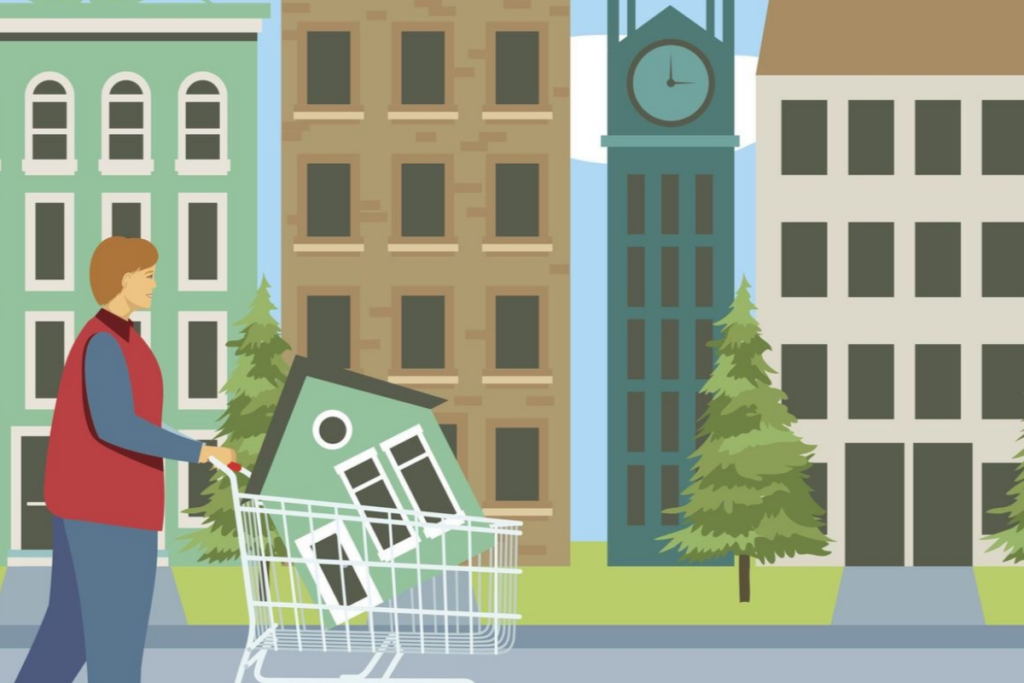
Source: BettinaSastoque/Pinterest
Across all age brackets, African Americans are falling behind their white counterparts in terms of homeownership. This is happening because of the soaring mortgage rates, inflated prices, and limited housing availability. These factors have rendered the dream of owning a home unattainable for millions of Americans.
One out of every three Black millennials who were born between 1981 and 1996 owns a home. On the other hand, two out of every three white Americans in the same age group owns a home.
Among those aged 43 to 58, known as Gen Xers, 52 percent of Black Americans own a home. This is a lesser percentage compared to 80 percent of their white counterparts.
For boomers aged 59 to 74, 60 percent of Black people own homes, while 85 percent of white people do. This data is obtained from the real estate platform Redfin.
Last year, the price of getting a loan to buy a home went up a lot. It increased to a two-decade high and is still hovering around 7%. This, along with the increase in prices due to a limited supply of houses, made it challenging for many Americans to afford a home.
Redfin pointed out that Black Americans had an even harder time in the homeownership landscape than whites. In 2023, only 7% of homes for sale were affordable for Black buyers, while 22 percent were affordable for white buyers.
Differences in homeownership rates between races are connected to bigger inequalities in the U.S. economy. Black people typically earn less than white people and have less money saved up. For every $100 white families have, Black families only have $15. This makes it harder for Black families to buy homes because they often don’t have enough money saved up. Studies show that Black Americans are more likely to use their retirement savings to make down payments for a house compared to other groups in the country.
The financial crisis in 2008, caused by problems in the housing market, hit Black Americans the hardest. It caused them to lose a lot of their money and made it harder for them to earn as much. Changes in the mortgage system since then have also made it harder for millennials to get loans to buy homes.
According to Daryl Fairweather, the chief economist at Redfin, Millennials are struggling to buy homes compared to their parents. This is because they’ve had a hard time with money and there aren’t enough houses available. Also, discriminatory policies from the twentieth century stopped Black Americans from owning homes. This means they don’t have much money to give to their kids. This, in turn, also makes it challenging for them to buy homes too.
A new study by the National Association of Realtors found that Black people trying to buy homes often face more hurdles. They’re more likely to be turned down for mortgages, and even when they do get one, it’s usually more expensive. This is because they often don’t have as much family wealth passed down to them due to historical discrimination. “Young Black Americans started behind largely because they’re less likely to have property and money passed down from their parents or grandparents, who faced racial discrimination themselves,” Fairweather said. “And sadly, discrimination and unfair economic situations still hold them back today.”
Over the past three years, when mortgage rates dropped during the COVID pandemic, Black millennials could buy homes at lower prices. Redfin pointed this out. The economy is also improving, and this could benefit future homebuyers too.
“Even though young Black Americans have faced big obstacles to owning homes, things are starting to change. I think the gap between Black and white homeownership will start to get smaller for millennials and Gen Zers soon,” Fairweather said. “Black unemployment is deficient, and the gap in wages between races is getting smaller. This should make it easier for more young Black Americans to become homeowners.”

